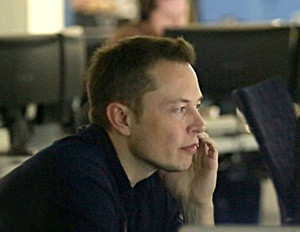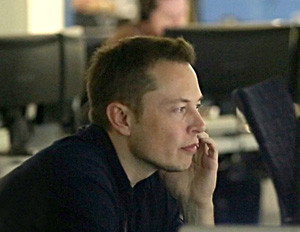
Tesla CEO Elon Musk managed to freak out investors last Thursday by acting dismissively toward analysts during an earnings call, calling a question about the company’s capital requirements “boring” and “bone-headed” and “not cool,” a strange performance that seemed to lead to a side in the shares’ performance afterward.
More bravura was on display the following day, with Musk warning the growing number of short sellers who are betting against the automaker. Specifically, he tweeted that a “short burn of the century” is “coming soon.” He also retweeted a Barron’s article that highlighted that there’s now more demand for short positions than supply. (Barron’s compared the conundrum to the same one facing Tesla’s customers.)
Perhaps to make certain that Tesla bears feel some pain, Musk himself shelled out roughly $10 million to acquire more Tesla stock yesterday, a purchase that pushes his stake in the company to nearly 20 percent, according to Bloomberg’s analysis.
Whether or not directly correlated, Tesla’s shares rose 3 percent yesterday, boosting Tesla’s market cap to $51.4 million. It has slipped again slightly, as of this writing, to $49.7 billion.
Tesla’s shares seem to recover almost no matter what Musk does or says, but it’s worth asking why Musk still talks with analysts at all. As writer and venture capitalist M.G. Siegler noted during our “Equity” podcast last week, many CEOs of Musk’s stature deputize other executives within their companies to talk with analysts, including Amazon’s Jeff Bezos and, when he was leading Apple, the company’s famous cofounder, Steve Jobs.
While Musk continues to give Tesla analysts what they want — Musk’s own time and perspective — his apparent eagerness to be a combative with them creates a “weird dichotomy between those two things,” Siegler noted.


